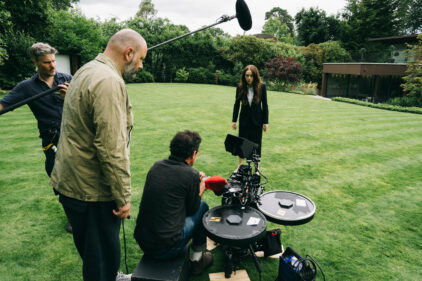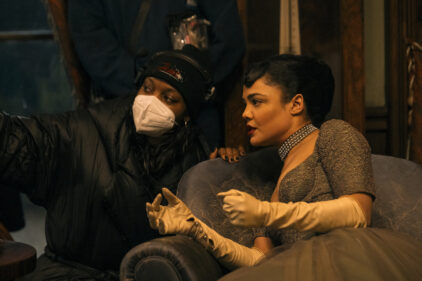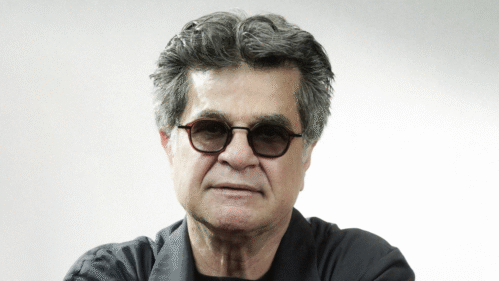The first time I saw Harvey Keitel in a movie marks, in a way, the beginning of my career as a film critic. It was November of 1967. I had been a reviewer for seven months, and was looking at “Who’s That Knocking on My Door?,” one of the entries in the Chicago Film Festival. It was a low-budget black and white film out of New York, directed by someone named Martin Scorsese and starring Keitel as a guilt-ridden kid from New York’s Little Italy.
The first moments of that movie would look and sound familiar today: Rock music on the soundtrack, as a hand-held camera follows the characters down the sidewalk. But remember that this was before “Easy Rider” popularized the notion of using pop recordings for a sound track, instead of a standard musical score. Remember that hand-held cameras were still mostly in the hands of underground filmmakers. Remember that until Scorsese, hardly anybody except John Cassavetes had put so much energy on the screen–had been willing to work without the safety nets of a polished script and careful camera work.
Keitel was an actor unlike other leading men. He seemed vulnerable, needy and driven–but in a fundamental way, not in a mannered way, like James Dean. His character introduced the theme that would be central to Scorsese’s work, and to Keitel’s: Guilt and its redemption.
In the 26 years since I saw that film, many actors and directors have come and gone, but both Scorsese and Keitel have remained true to their first inspirations, maybe because right from the first they were working from what truly obsessed them. And for me as a young critic, the energy and conviction in their work gave me a benchmark: Here was something authentic to judge other work by.
What Scorsese has done since then, you know about. You may not be as familiar with Keitel, who is, by his own admission, not a “bankable” star. But when his name is associated with a film, that’s usually a guarantee that the project will take chances and be interesting. That is especially the case with his two current films, Abel Ferrara’s “Bad Lieutenant,” now opening around the country, and Quentin Tarantino’s “Reservoir Dogs,” which opened in October and is still playing in some markets.
Keitel plays tough guys in both films. But not tough guys who lack feeling and fear; his characters are almost always haunted. Remember him in “Mean Streets,” terrified of hell, testing his hand in the flame of a candle. Or as the pimp in “Taxi Driver,” always nervous, in need of a fix. Or as the concert pianist in James Toback’s “Fingers,” who has to avenge the death of his Mafioso father. Or as the violent, jealous boyfriend in “Alice Doesn't Live Here Anymore.” Or as the angry auto worker in “Blue Collar.”
All of those roles were a preparation for Keitel’s work in “Bad Lieutenant,” which is perhaps the most courageous performance he has even given. Not many successful actors would have even considered the role, because the character is so thoroughly, unremittingly evil: A lying, stealing, murdering, drug-addicted New York cop who is seen spiraling downward, out of control, during the last days of his life.
“You know, it’s a funny thing,” Keitel told me about the role. “When I was given ‘Bad Lieutenant.’ I read a certain amount of pages and I put it down. I said, there’s no way I’m gonna make this movie. And then I asked myself, ‘How often am I a lead in a movie? Read it, maybe I can salvage something from it.’ And I read on and when I read the part about the nun, I understood why Abel wanted to make it and why Zoe Mann had written it. The way the nun was written compelled me to make the movie.”
The nun in the movie is raped and beaten. The bad lieutenant visits her in the hospital and discovers that she knows her attackers, but will not name them, because she forgives them.
What the lieutenant wonders, I said, is whether anyone will ever be able to forgive him. Whether he is worth forgiving.
“Absolutely,” said Keitel. “He asks himself, I’ve done so much evil, how can I ever do what’s good? How can I ever undo what is bad? He discovers the only way one can undo the bad is by doing good deeds. And that is the way to undo the bad that we have done.”
That whole idea of sin and redemption is central to your best characters, I said. I know you’re Jewish, but I keep thinking of you in Catholic churches.
Keitel laughed.
“Is it this candle I’m holding? What we all have in common is the conflict between what is right and what is not right. It’s mythological; it goes back to before recorded time. It’s not a question of the local religion, Catholicism or Judaism, Islam or any religion. This is a mythological quest.”
We were having this conversation one afternoon at the 1992 Cannes Film Festival, the day after “Bad Lieutenant” premiered to the kind of reception it has received ever since: Some praised it, others walked out, but everyone seemed to agree that Ferrara and Keitel had been willing to go all the way, to push through the edges of the envelope.
It was clear at that first screening that the movie would get the NC-17 (adults only) rating. No amount of editing could change its basic nature. Yet the film has stronger values than the violent nihilism that routinely gets rated R. And no scene of sexual harassment in movie history has ever shown more effectively how frightening and damaging it is than the scene in “Bad Lieutenant” where Keitel stops two girls who are driving without a license, and forces them to participate in what can only be described as a verbal rape.
Ferrara, a gritty, tough-talking New York director with more than a passing resemblance to Tom Waits, came up through exploitation pictures like “Ms. 45” to direct a series of rough, low-budget movies with a street feel, like “China Girl” and “King of New York.” With “Bad Lieutenant,” he has entered the ranks of important directors, although the film’s commercial prospects will be hurt by the NC-17 rating.
That doesn’t bother Keitel, who has made a practice throughout his career of being available for daring low-budget work. Showing either good taste or amazing prescience, he has worked, for example, in the first films of Scorsese, Paul Schrader (“Blue Collar”), Toback (“Fingers”), Ridley Scott (“The Duelists”), Alan Rudolph (“Remember My Name”) and Tarantino.
“With ‘Bad Lieutenant,’ the movie was about the most important issues in my life,” he said. “That is the quest to know right from wrong, and the difficulty in revealing oneself. A lot of people asked me after the screening why I’m always playing violent characters. I said I’ve never, ever played a violent character. I have played characters who were in deep conflict and despair and chaos.
“The lieutenant has a deep need. He’s a family man; he has children. He knows he is bad. He has a deep need for redemption.”
The movie’s opening sequence, I said, as the lieutenant takes the kids to school and drop them off, is so good at setting up the whole movie. He’s short with the kids, he’s impatient, and then we see why: He can hardly wait to get away from the school and snort cocaine. The kids were lively and happy; they didn’t look like beaten children. But the father didn’t seem to fit with those kids; he had another agenda. Your face was so filled with other thoughts…
“He gets into that car with utter difficulty,” Keitel said, “I’m speaking metaphorically in that scene about his entire existence, his family’s existence, and his role within the family. So much of my experience in growing up and living with my own family, has been like entering that car with utter difficulty. I felt at that time in my life I was ready to explore the bad lieutenant. That I was ready to confront my own difficulty in that area.”
There is another scene that illustrates the same utter difficulty. Keitel has come home at some time in the night, after hours of booze and cocaine. He collapses on the living room couch. The house and family seem to exist around him, apart from him; his wife has long since made her decision to write him off and get on with things.
It is early. The TV is on, the kids are making noise, and Keitel comes very slowly to his feet and begins to function. At that point we empathize with the burden of fatigue, dread and pain that he carries around all day. It is his own fault, but still it is a fact, and at moments like that we understand that, as deep as his badness is, that is how deep is his need for redemption.
The surprise, at the end of “Bad Lieutenant,” is that this NC-17 film is one of the rare films to take morality and spirituality seriously. Since it stars Harvey Keitel, maybe that should not be such a surprise.











